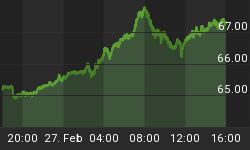If the global economy were a three ring circus, then the center ring attraction would be the currency and debt battle quietly and slowly building between the United States and China. But for the past month the world's attention has been distracted by a much more entertaining sideshow in which European unity, and the ongoing viability of the euro, is being tested by the Greek debt crisis.
I believe the short-term problems in Europe are being overblown and the potential demise of the euro highly exaggerated. For those who can connect the dots however, the Greek drama throws some much needed light on the far more daunting problems unfolding within our own fiscal house.
The scenario that is eliciting the greatest fears is that resentment from the more solvent EU members (Germany, France, et. al) will prevent a bailout. If the Greek government then fails to adopt austerity measures that will bring it back in line with EU debt requirements, an expulsion, or withdrawal, from the Union becomes a possibility. This could set off a domino effect that will bring down larger European political or monetary union. On the other hand, if Greece does receive a bailout, a moral hazard will be created that will encourage other indebted countries (Portugal, Spain, etc.) to press for equal benefits.
Both scenarios would destroy confidence in the euro, remove the biggest rival of the U.S. dollar, and give a shot in the arm to the dollar's global status.
However, there is a third more likely alternative that few are considering. My gut is that Greek politicians will find the prospect of being forced out of the union and re-creating their own currency, formerly called the drachma, even more unpalatable then swallowing the bitter pill of fiscal austerity.
Even if defying the EU might seem like good politics now for Greek leaders, the risks associated with economic independence could be so daunting that politicians will refuse to roll the dice.
To find out why this crisis is likely to be resolved, and why similarly daunting debt problems in U.S. states like California should be attracting even greater scrutiny, please click on the link below to see the entire commentary which is contained in the latest online edition of my free newsletter The Global Investor: www.europac.net/theglobalinvestor
In addition to my analysis of the Greek crisis, the issue also contains an article about how Australia has emerged from the global economic crisis in fairly good shape (and how investors can play that market), and a piece by well known economic libertarian Mark Skousen who shares his thoughts on a personal encounter he had with Fed Chairman Ben Bernanke.
The newsletter comes out six times per year. I think you'll find its worth your time.















